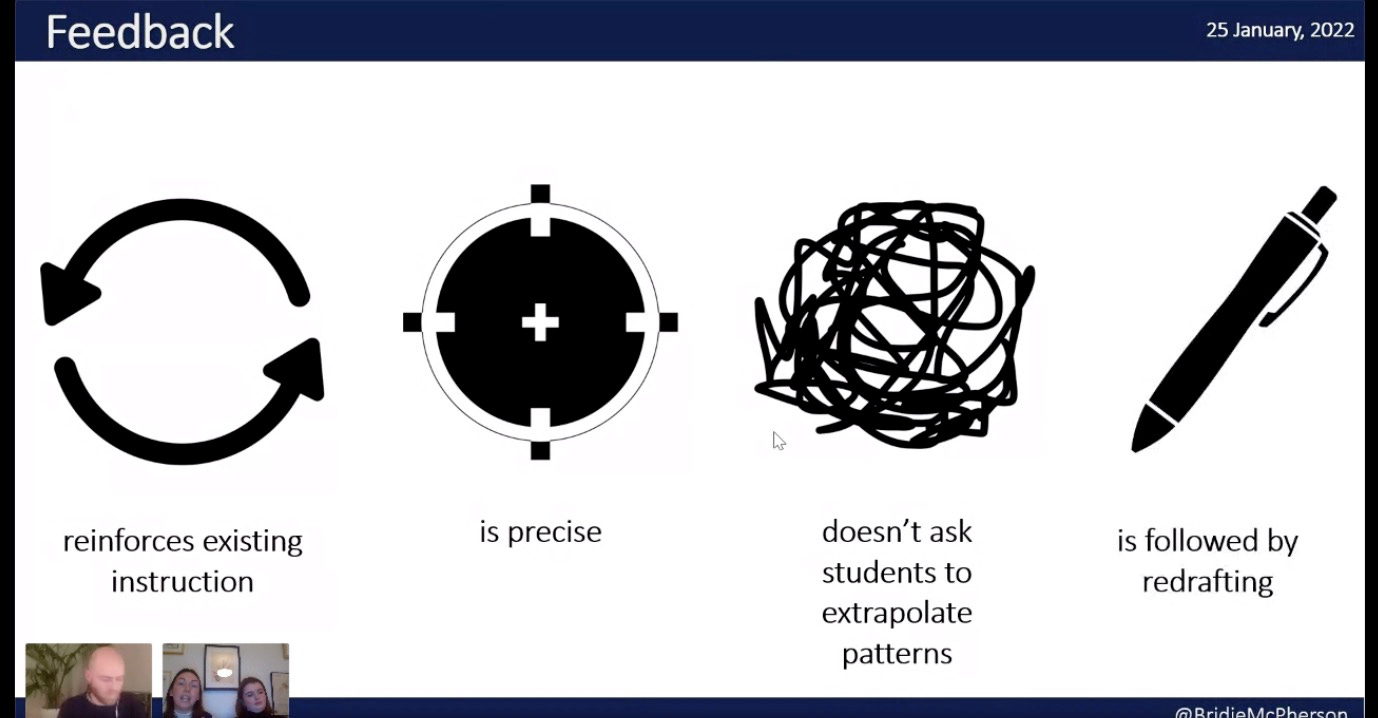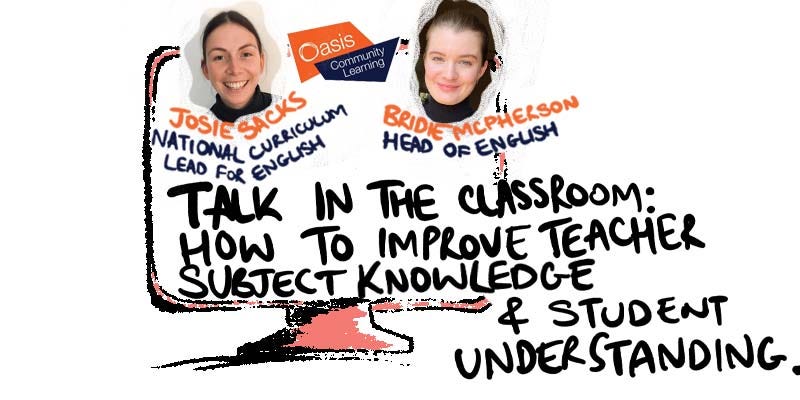Hello Curriculum Thinkers,
Have you ever given a student feedback on something you never explicitly taught them? Have you ever asked them to improve their work without teaching what the patterns of success are?
The chances are we all have at some point - classrooms are complex and lessons don’t always go to plan.
But it does mean you miss an opportunity for students to master, and feel success in, the curriculum you’ve planned.
That’s why the takeaway from this week’s master class by Bridie McPherson and Josie Sacks is so useful…
Four characteristics of good feedback:
🔃 Reinforces existing instruction - you can’t give feedback on something you haven’t already taught.
🎯 Is precise - provides explicit steps to excellence.
🤯 Doesn’t ask students to extrapolate patterns - good feedback ISN’T:
giving students a model and saying ‘reproduce this’ or…
putting a student’s writing on the visualiser and saying ‘make yours look more like that’ or…
doing a live model and saying ‘make your answer look like mine’.
It’s too cognitively demanding to do any of these. Just think about how hard it is for us, even as teachers, to turn exemplar material into instructions designed to help students emulate it.
🖋 Is followed by redrafting - it’s what students do with feedback that matters.
Want to know what this looks like in practice? And how to plan all of this intentionally into your curriculum over time?
📎 Resources here include:
Intent statement for English
Concepts progression map KS3-5
Year 7 writing curriculum extract
Year 9 and 10 versatile vocabulary tool
📺 Talk in the classroom: how to improve teacher subject knowledge and student understanding
Your curriculum is well resourced, aligned, sequenced, and vocabulary-led. But your team are not as experienced as they might be and they've not delivered the planned curriculum before.
So how do you help them improve their subject knowledge to ensure it’s taught well and understood by students?
Join us to learn:
How to roll out strong talk routines in the classroom
How to collect live data from students in the classroom
How to notice patterns in student talking
How to respond to patterns, improving student work before they write by spotlighting success and excavating errors
How to use department time to create a shared, purposeful drop in culture which strengthens routines
📅 Tues 1st Feb.
🕕 6pm.
If you need a hand accessing any resources in this email, hit reply and we’ll get it sorted.
Sent with ❤️ from the Curriculum Thinkers Team at We Are In Beta.
Curriculum Thinkers quick links.
🔎 National Curriculum SLT Directory of Practice
💬 National Subject Leader Directories and Groups
🎥 Master classes recordings and Curriculum Thinking Week talks
🆕 New here? Welcome! Catch up on previous editions of Curriculum This Week via the archive





